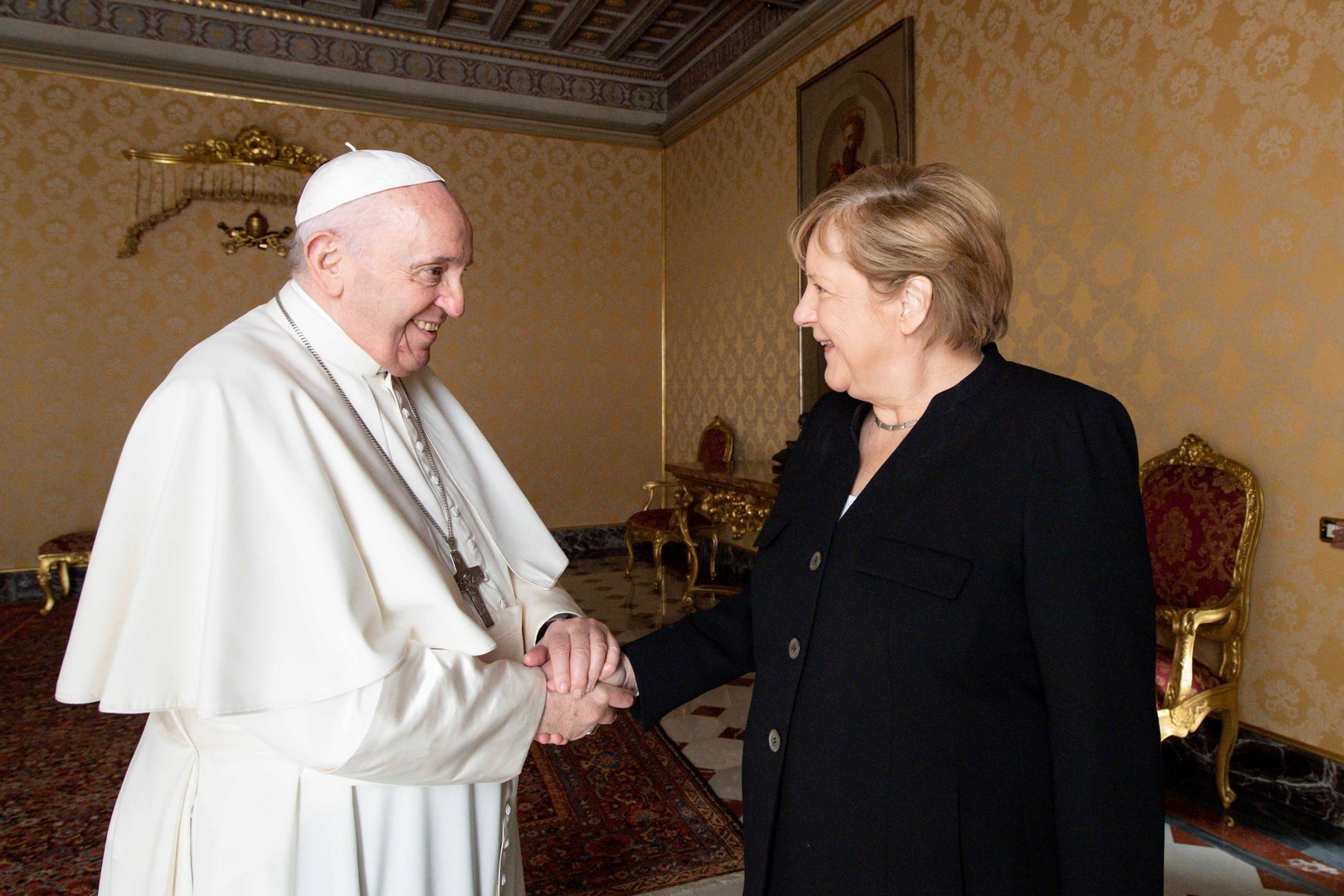Outgoing German Chancellor Angela Merkel said on Thursday the response to climate change would require a radical change in how people live as she met Pope Francis during a farewell visit to the Vatican and Italy.
Francis and other religious leaders made a joint appeal on Monday for next month’s U.N. Climate Change Conference COP26 to offer concrete solutions to save the planet from “an unprecedented ecological crisis”.
Merkel praised the pope’s position.
“Humanity’s response to climate change will require a radical change in our way of living,” she told reporters after the pair also discussed biodiversity, the future of the European Union, world conflicts and sexual abuse in the Church.
Merkel and Francis, who have met several times before, spoke privately in the papal library of the Vatican’s Apostolic Palace for about 45 minutes.
In an interview with a Spanish radio network last month, Francis called Merkel, who has led Germany for 16 years, “one of the world’s greatest political figures”.
Before seeing the pope, she met German Jesuit Father Hans Zollner and others at the new offices of the Pontifical Gregorian University’s programme to prevent sexual abuse.
On Wednesday the pope expressed his shame following a major investigation in France that revealed that French clergy had abused more than 200,000 children over 70 years.
Several investigations in Germany in the past few years have also revealed widespread abuse.
“The truth must come to light,” Merkel said after meeting the pope.
The Vatican said in a statement Merkel and the pope also discussed migration and the COVID-19 pandemic.
At the end of the private part of the audience, Francis and Merkel, the daughter of a Lutheran pastor, exchanged gifts.
Francis, 84, gave Merkel copies of some of his writings and a miniature reproduction of one of the bronze doors of St. Peter’s Basilica and she gave him a three-volume collection about the gospels and a book on Michelangelo.
The 67-year-old Merkel, whose conservatives lost in the Sept. 26 election to the centre-left Social Democrats, later met Prime Minister Mario Draghi, the former head of the European Central Bank, which is based in Germany.







Click here to change your cookie preferences